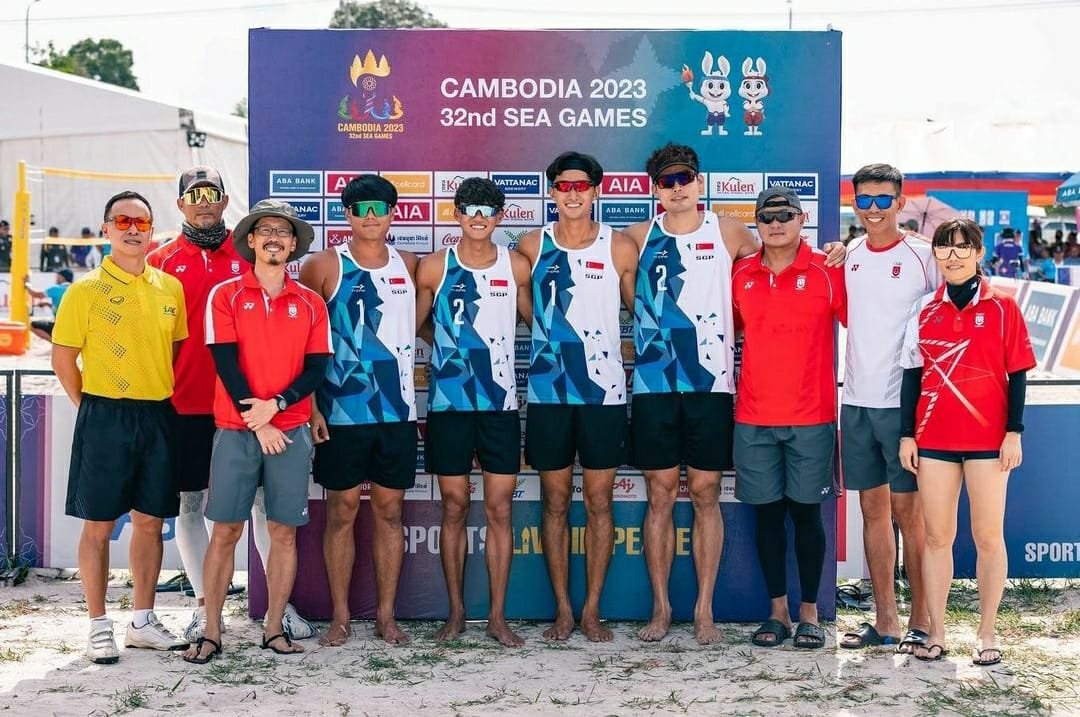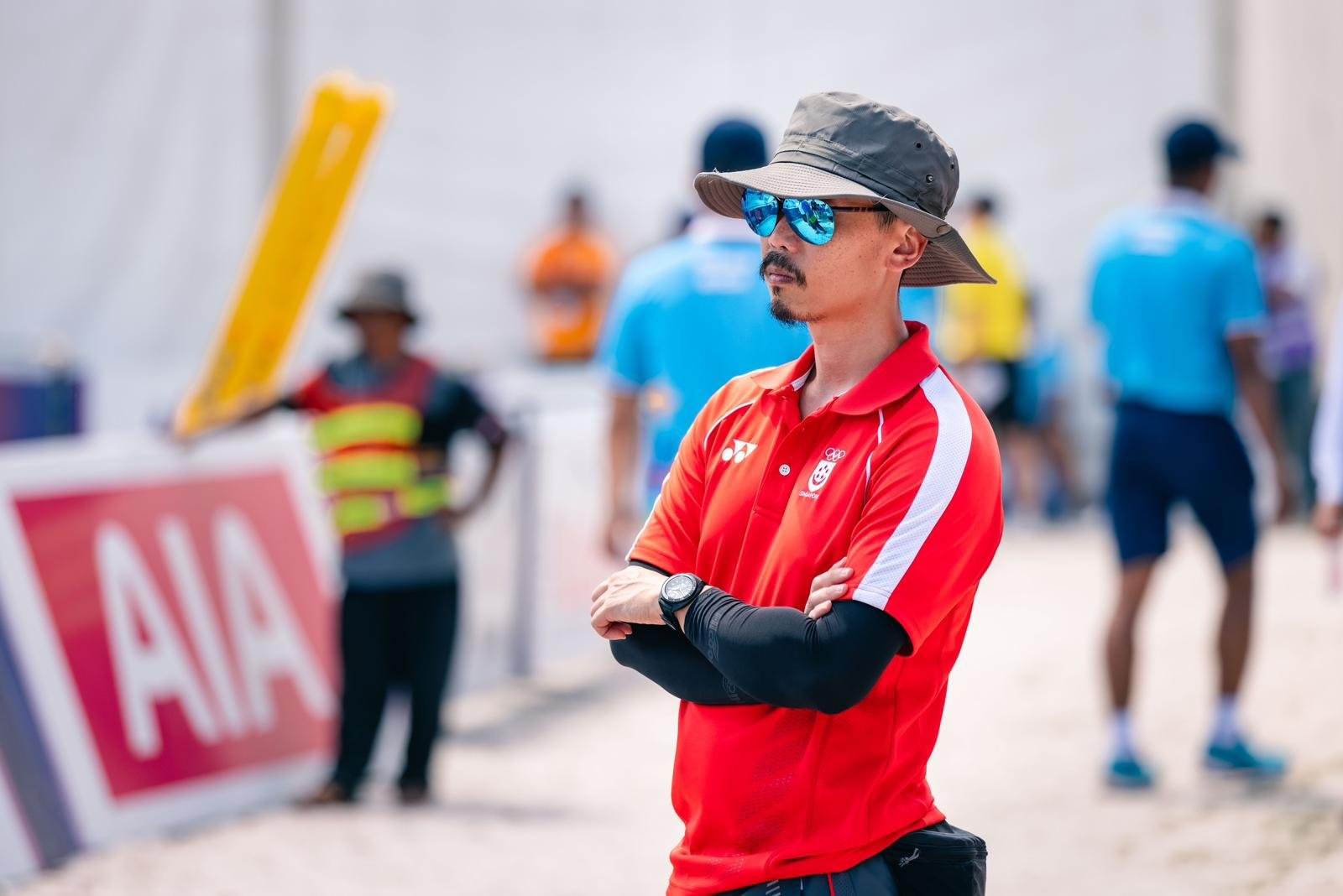SEA GAMES 2023 - Lessons from working with High Performance Sport
The 2023 SEA GAMES held in May 2023 has come to an end and you might have watched it on the television or read about it in the papers. What you hear mostly about are the victories, the cool pictures of athletes on podiums, the big airport welcome from fans. In this blog, I will tell you about the lessons I've learnt from working with high performance sports as a Team Physiotherapist spending more than 2 weeks in Cambodia with 2 sporting teams and the lessons we can learn beyond the glitz and glamour they show you in the media.
Lesson 1 : The Grind is necessary for sports excellence.
When we see athletes compete in front of the screen or on the spectator stands, what we see is their current performance. What we do not see is how much hard work they put in. Some of these athletes train daily, improving their physical, and mental abilities along with their skills to improve their expertise in their chosen field. Those who do not put in the hard work, simply get eliminated even before they can reach the level of a national athlete. Imagine having to train daily, on top of juggling school work, jobs. The amount of sacrifice that needs to be made is massive. Some athletes put their education in pursuit of sporting excellence, while others sacrifice their careers, taking time away from work and selecting jobs that would allow them to continue training. Personal time needs to be sacrificed too. Imagine finishing work and having to rush for training. By the time you get home, it is already late, leaving little time to unwind. Very soon the day begins and the cycle continues. Do it for years and perhaps there is a chance of standing on the podium.
Lesson 2: It takes a HUGE village to raise an athlete.
Just as how it takes a village to raise a child, it takes a larger village to raise an athlete. The list mentioned here is not exhaustive and it begins with the parents. Parents play a large role in grooming and supporting an athlete. Besides school and the usual enrichment lessons that parents have to ferry student-athletes to, they have the extra task of squeezing training sessions into the schedule and transporting them. Other than transportation needs, they are also responsible for the logistical, nutritional, and emotional needs of the athlete. They have to balance between giving them enough support and not giving them too much pressure and this is tough to balance. During races, the coaches, team manager, volunteers, and medical support take over the role of the parents with the added goal of achieving the best performance from the athletes. I have seen volunteers from the federation and associations taking their own leave and paying for their own air tickets to support their sporting team. Without the village, there can not be an athlete. No athlete is an island.
Lesson 3: Sports performance does not necessarily equate to good health
We see athletes as being physically fit, spotting 6-pack abs and with a low body fat percentage, and think “they must be very healthy”. This cannot be further from the truth. In order to fit their training schedules into their lives, many athletes have to have up extra early to train. If they do not go to bed correspondingly, they would accumulate sleep debt. When it comes to nutrition, not every athlete eats ‘clean’ as well. Some indulge in sugared beverages and highly processed food frequently. As it may not necessarily pose problems to young athletes, if they continue this type of dietary habits after they retire from the sport, they can very easily be in a perpetual calorie surplus if they do not upkeep their activity levels. Ask 10 athletes if they have any pain and the majority would tell you at least 1 area of pain. Many of them train despite their injuries, a testament to their mental grit. However, if minor injuries are not addressed, they usually progress to bigger, more major issues. At times major injuries can also have very detrimental consequences for the rest of their lives. Athletes also undergo a lot of mental and emotional pressure. They carry with them the dreams of their family, team, and coaches on top of normal life stressors. Can you imagine, after putting in the time, sweat, blood, and tears and everything boils down to, in some sports, a few minutes of competition? If the results are good, they get to celebrate and they get into a state of euphoria. If the results are bad, without good coping strategies, they may feel depressed and dejected.
Lesson 4: Outcome-Driven vs Process Driven
Being outcome-driven means that we are focused on the end goal or desired outcomes. There is a strong emphasis on achieving specific objectives in the case of sports, winning a gold medal, or being top in a race. This approach prioritizes flexibility and encourages a result-oriented mindset. If the core values of the team or the athlete aren't strong, this type of drive may lead to a “ winning at all costs” mindset which can be a slippery slope. The measure of success, if you are outcome driven, is very absolute. It's either you win or you don’t. In sports, there are many determinants that can affect performance and some of these factors cannot be controlled like the weather, state of health of your opponents, and traumatic injuries. Having too much of an outcome-driven mindset may lead to more disappointments. For example, an athlete who has performed his personal best in the games but did not stand on the podium as his competitors were just faster than him being disappointed if his goal was to win a medal. He ignored the fact that he has already performed at his best. Being process driven, on the other hand, emphasizes the predetermined progress and procedures to ensure consistency and minimize errors. When we focus on the process, we take away the pressure of winning. The measure of success is if we have followed through with the processes in place and in doing the best vs being the best. There is an element of surrender to let results be a side effect of adhering to the process. With less stress placed on results, athletes may focus more on their skill, technique, and strategies in order to do well.
Lesson 5: We may all not win medals or even be athletes, but we can be the best version of ourselves.
Not all of us are born to be athletes. We may not run fast, jump high or throw the farthest. Even if I started training now, I would never be able to perform at a level that can represent the nation and that's a fact. We, however, can still be the best versions of ourselves. The healthiest, happiest, most productive version and this involves keeping to a process-driven mindset of healthy habits that enriches our lives. This may involve eating healthily, improving hydration, sleeping early, cutting screen time, having time for exercise and recreational sports, having time to unwind, spending more time in nature, keeping relationships strong, and having a purpose-driven life. There may be no medals to be won, but true intrinsic satisfaction.
If you need a guide, click the CONTACT ME box to get in touch with me. I would love to help you in your journey.




